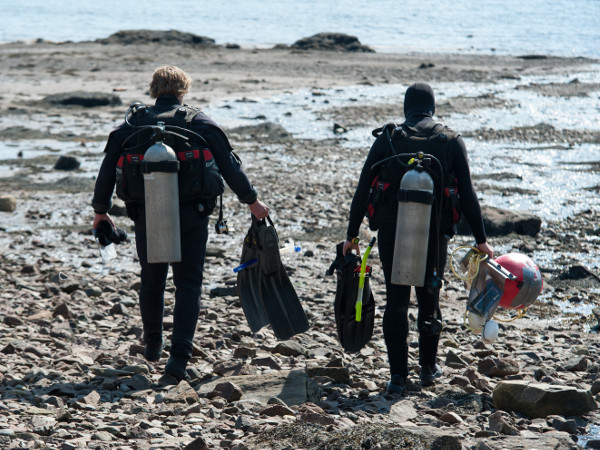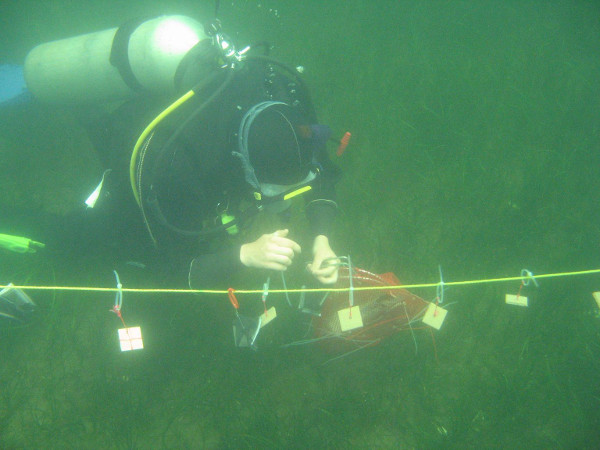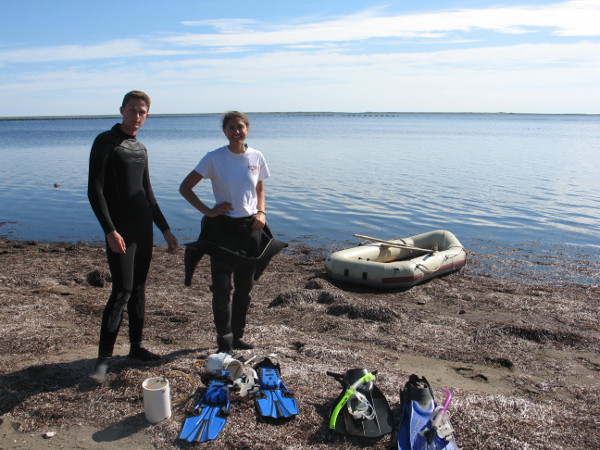Teaching
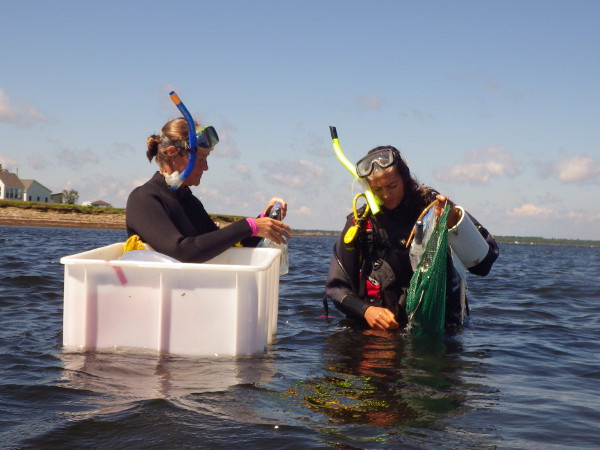
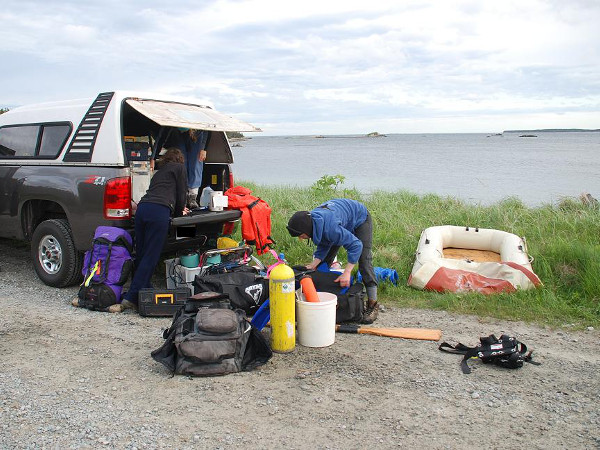
MARI 4215: MARINE PLANTS IN THE 21st CENTURY
This course focuses on the growing importance of habitat-forming marine plants, including mangroves, saltmarshes, seagrass meadows, kelp forests and other seaweed beds. We cover issues around wild harvesting, aquaculture, blue carbon storage, bioprospecting, habitat restoration, ecosystem-based management, and climate change. Class format includes overview lectures, case-studies, discussions, and interactive work.
MARI 4350 / 5350: CUTTING EDGE IN MARINE SCIENCES
This course focuses on current, often hotly debated topics in marine science. We discuss recently published papers and current research initiatives on urgent issues, including biodiversity, fisheries, conservation, management, climate change, and human-ocean interactions. Class format includes lectures, case-studies, as well as active discussion, debates, group work and hands-on assignments.
BIOL 3063 / MARI 3063: RESOURCE ECOLOGY
This class considers the ecology, utilization, and management of natural resources in fisheries, wildlife and forest management, agriculture and aquaculture. Topics include population dynamics, community interactions, and ecosystem support of resources as well as the history of resource utilization, practices of controlling production, pests, and predators, and sustainable management strategies.
Graduate seminars and modules
BIOL 5705/6: GRADUATE MODULE
2020 – Future-Proofing Ocean Health
2017 – Science & Creativity
2015 – Different Approaches to Food-web and Ecosystem Modeling: Methods and Applications
2009 – Science & Creativity
2008 – Different Approaches to Ecosystem Modeling
2007 – Advances in marine historical ecology & environmental history
Honours student thesis supervision
2024-2025 – Dave Ross (Marine Biology, Dalhousie University)
Title: ‘Effects of substrate grain size composition on the ex-situ growth of Zostera marina‘
2021-2022 – Molly Wells (Marine Biology, Dalhousie University)
Title: ‘Assessing the impact of visual media as an outreach tool for marine conservation’
2021-2022 – Caelin Randall-Scott (Marine Biology, Dalhousie University)
Title: ‘Human impacts on coral and macroalgal benthic cover among sites in the Mesoamerican reef, Northwestern Caribbean Sea’
2020-2021 – Victor Papaiz (Marine Biology, Dalhousie University)
Title: ‘Using sportfishing tournament data to examine catch trends and evaluate management and conservation practices’
2017-2018 – Faelan Prentice (Oceanography, Dalhousie University)
Title: ‘Ecosystem model intercomparison of climate change impacts on fish and fisheries in the Canadian Pacific, Atlantic, and Arctic EEZ’
2017-2018 – Isabelle Hurley (Marine Biology, Dalhousie University)
Title: ‘Spatio-temporal mapping and analysis of the Atlantic Halibut (Hippoglossus hippoglossus) fisheries bycatch in the Maritimes region’ (co-supervised with Nancy Shackell)
2017-2018 – Troy Palmer (Marine Biology, Dalhousie University)
Title: ‘Nitrogen loading in Prince Edward Island estuaries and implications for seagrass communities’ (supervised by Grace Murphy)
2016-2017 – Elizabeth Nagel (Marine Biology, Dalhousie University)
Title: ‘The effects of fisheries closures on groundfish communities of the Scotian Shelf’ (co-supervised with Nancy Shackell)
2015-2016 – Annabel Westell (Marine Biology, Dalhousie University)
Title: ‘Conservation maps of shark populations and policy’ (co-supervised with Christine Ward-Paige)
2015-2016 – Jake Abbott (Biology, Dalhousie University)
Title: ‘Identifying the Effects of Human Recreation on Animal and Plant Distributions in the District of Squamish, British Columbia’
2014-2015 – Kristen Wilson (Marine Biology, Dalhousie University)
Title: ‘Effects of increasing ocean temperatures on the survival and growth rate of common macroalgal species along the coast of Nova Scotia’
2014-2015 – Mizuho Namba (Marine Biology, Dalhousie University)
Title: ‘Regional comparison of the ecosystem services and composition of eelgrass (Zostera marina) beds in the Maritime Provinces of Canada’ (co-supervised with Allison Schmidt)
2013-2014 – Duncan Baker (Marine Biology and Oceanography, Dalhousie University)
Title: ‘Comparative analysis of different field survey techniques for assessing coastal fish communities’
2013-2014 – Nakia Cullain (Marine Biology, Dalhousie University)
Title: ‘Seasonal changes in the structure and services of eelgrass ecosystems in Nova Scotia’ (co-supervised with Allison Schmidt)
2013-2014 – Kim Nguyen-Phuoc (Marine Biology, Dalhousie University)
Title: ‘Effects of tourism on the behavior of immature green turtles (Chelonia mydas) in Akumal Bay, Mexico’
2012-2013 – Haley Guest (Environmental Sciences, Dalhousie University)
Title: ‘Public perceptions of marine management in Nova Scotia’
2012-2013 – Richard (Simon) Lay (Marine Biology, Dalhousie University)
Title: ‘Seasonal changes to rockweed communities in Nova Scotia’
2011-2012 – Jessica Ellis (Marine Biology, Dalhousie University)
Title: ‘Current trends in the abundance, distribution and fishery of hagfish (Myxine glutinosa) in Atlantic Canada and worldwide’
2011-2012 – Lauren Kay (Marine Biology, Dalhousie University)
Title: ‘Effects of eutrophication and climate warming on growth and carbon and nutrient storage in the fucoid seaweed Ascophyllum nodosum‘
2010-2011 – Gregory Britten (Biology & Statistics, Dalhousie University)
Title: ‘Modelling trophic dynamics and stability in a predator-depleted marine fish community using an autoregressive time-series model’
2007-2008 – Jessica Wysmyk (Marine Biology, Dalhousie University)
Title: ‘The effects of nutrient loading on seagrass beds (Zostera marina) in Atlantic Canada’
2007-2008 – Alison Battersby (Bournemouth University, England)
Title: ‘Changes in sessile species richness in eelgrass habitats along a gradient of nutrient loading’
2006-2007 – Sean Anderson (Environmental Science Program, Dalhousie University)
Title: ‘Sustainability of emerging low-trophic level fisheries on the Scotian Shelf’
Graduate student thesis supervision
2020–2022 – Francheska Krysiak (MMM, Dalhousie University)
Title: ‘TBA’
2016–2020 – Andrea Buchholz (Ph.D., Dalhousie University)
Title: ‘Climate change effects on fisheries and marine ecosystems in the Northwest Atlantic’
2015–2021 – Kriste Makareviciute (Ph.D., Kiel University, Co-supervisor)
Title: ‘Global change effects on the basis of marine food webs’
2015-2017 – Kristen Wilson (M.Sc., Dalhousie University)
Title: ‘Combined effects of climate change and physiological thresholds on the distribution of habitat-forming macroalgae in the Northwest Atlantic Ocean’
2014-2016 – Nakia Cullain (M.Sc., Dalhousie University)
Title: ‘Regional variation and effects of finfish aquaculture on seagrass habitats and associated macro-infauna communities in Atlantic Canada’
2014-2016 – James Scott McCain (M.Sc., Dalhousie University)
Title: ‘Spatial and temporal analysis of rockweed beds and seagrass meadows as commercial fish nurseries in Atlantic Canada’
2012-2015 – Lauren Kay (M.Sc., Dalhousie University)
Title: ‘Effects of rockweed harvesting on the structure and functioning of rockweed beds’
2012-2015 – Reba McIver (M.Sc., Dalhousie University)
Title: ‘Long-term change to seagrass habitats in Atlantic Canada as a result of eutrophication’
2012-2013 – Alexandra Vance (MMM, Dalhousie University)
Title: ‘Integrated coastal zone management of eelgrass beds in Atlantic Canada’
2008-2011 – Anna Magera (M.Sc., Dalhousie University)
Title: ‘Marine mammal population recoveries and critical factors’
2007-2010 – Sean Anderson (M.Sc., Dalhousie University)
Title: ‘Trends, drivers and ecosystem effects of expanding global invertebrate fisheries’
2007-2010 – Nancy Deschu (MMM, Dalhousie University)
Title: ‘The ecological role and life history requirements of species that depend on both marine and terrestrial environments’
2006-2012 – Allison Schmidt (Ph.D., Dalhousie University)
Title: ‘Causes and consequences of change in the structure and functions of nearshore temperate habitats’
2005-2010 – Christine Ward-Paige (Ph.D., Dalhousie University)
Title: ‘Monitoring elasmobranch populations using scuba divers: Patterns, trends and potential biases’
2004-2010 – Francesco Ferretti (Ph.D., Dalhousie University)
Title: ‘The role of sharks in marine ecosystems: evaluating overexploited marine fish communities to detect long-term effects of predator removal’


